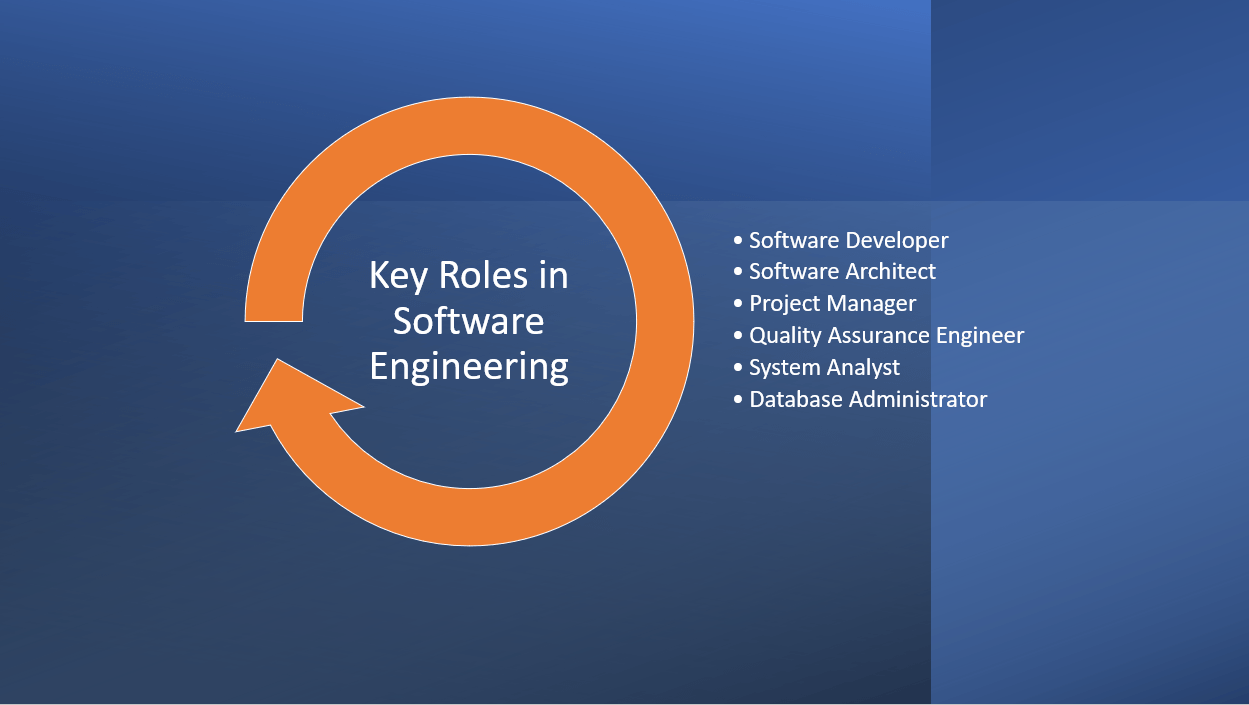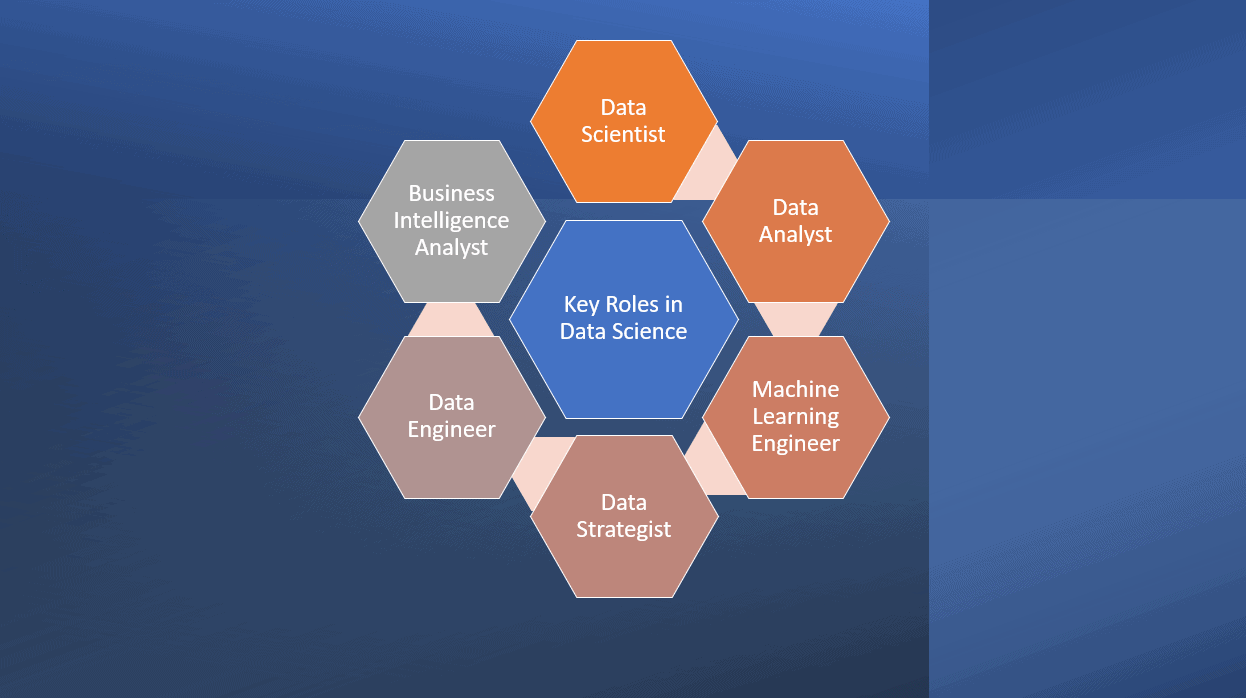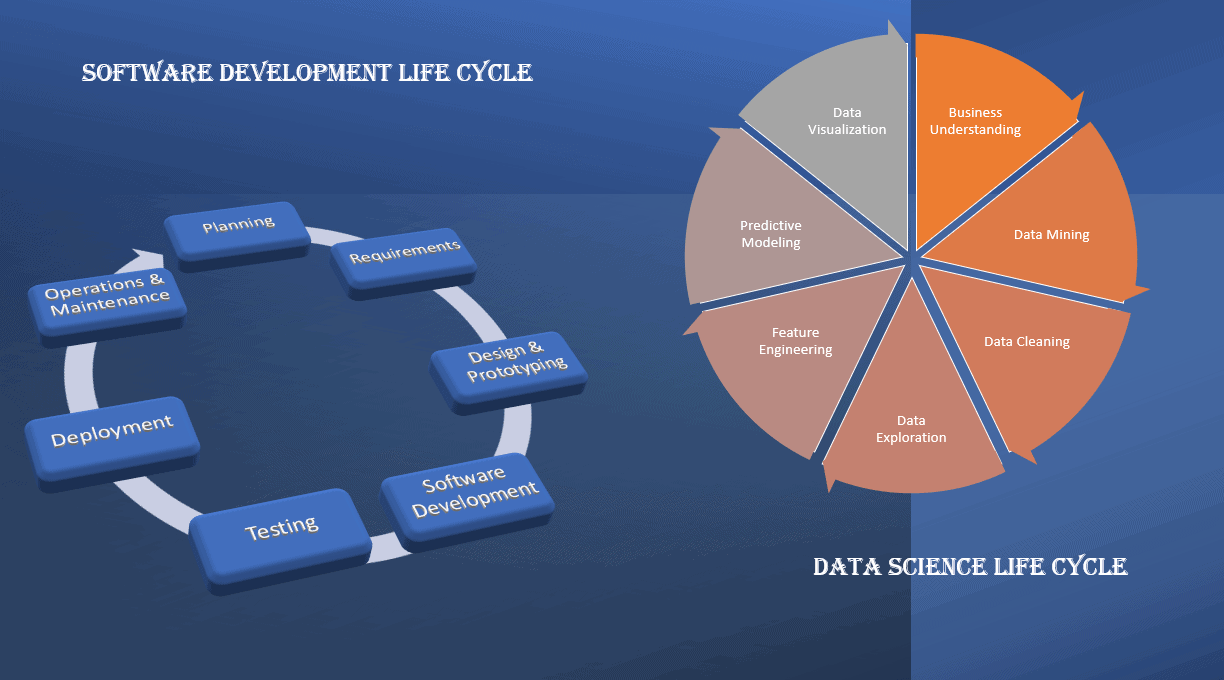Learn through the super-clean Baeldung Pro experience:
>> Membership and Baeldung Pro.
No ads, dark-mode and 6 months free of IntelliJ Idea Ultimate to start with.
Last updated: March 18, 2024
In this article, we’ll compare software engineering and data science. We’ll analyze their definitions, roles, similarities, and differences. Our goal is to help readers make informed career choices.
By exploring the unique aspects of each field, we’ll uncover the opportunities they offer and the challenges they come with.
Software engineering is a discipline that combines computer science and engineering. It involves designing, coding, testing, and maintaining software systems.
It focuses on using effective methods and tools to create good and scalable software. Additionally, software engineers collaborate with stakeholders to analyze requirements and develop functional software systems.
Furthermore, software engineering follows step-by-step processes like Agile or Waterfall. Engineers use programming languages, frameworks, and tools to write code, bring different parts together, and test regularly.
Moreover, they work with teams that have different skills to make sure the development considers the users. The main aim is to create reliable software that meets users’ needs and follows industry standards.
For example, a typical software engineering project is a mobile app development or adding new features to an existing app.
In software engineering, there are various roles we can play in the development and maintenance of software systems:

Each role entails specific expertise and responsibilities that collectively ensure the successful delivery of software solutions.
Let’s take a look at some important roles often found in software engineering and the corresponding tasks they handle:
| Roles | Responsibilities |
|---|---|
| Software Developer | Designs, codes, and tests software applications. |
| Software Architect | Designs the overall high-level structure of software systems. |
| Project Manager | Oversees a project timeline and resources and ensures project goals are achieved. |
| Quality Assurance Engineer | Does testing and quality control to ensure software meets standards and user requirements. |
| System Analyst | Analyzes client’s needs; formulate software requirements and translates them into functional software design. |
| Database Administrator | Designs implements and maintains databases used in software systems. |
These roles work together at every stage of the software development process.
It’s worth mentioning that different companies and projects might have extra or specialized roles.
Data science is a field that brings together different areas of knowledge to understand complex data sets. It uses statistics and machine learning to find valuable information and patterns in data.
Data scientists use their skills in data analysis and programming, along with their knowledge in specific fields, to discover insights and trends in data. They use advanced algorithms and computational tools to uncover practical insights and make decisions based on data.
Furthermore, data science is essential for solving complex problems in various industries like finance, healthcare, and marketing. By processing and analyzing large amounts of data, data science helps organizations gain a competitive edge and make informed decisions for strategic planning and optimization.
For instance, while software engineers and programmers design and develop a mobile app and its features, data scientists analyze the user data to estimate the users’ satisfaction with the app or to determine which new feature they’d like to have.
Data science includes several important roles that are responsible for extracting insights from complex datasets. These roles require a mix of statistical analysis, programming skills, and domain expertise:

Let’s take a closer look at some common roles in data science and their associated responsibilities:
| Roles | Responsibilities |
|---|---|
| Data Scientist | Analyzes data, applies statistical models, and develops machine learning algorithms. |
| Data Analyst | Cleans and preprocesses data, conduct exploratory data analysis, and generates reports. |
| Machine Learning Engineer | Builds and implements machine learning models, optimizes algorithms and evaluates performance. |
| Data Strategist | Defines data-driven strategies, identifies business opportunities, and recommends data solutions. |
| Data Engineer | Designs and maintains data infrastructure manages data pipelines and ensures data quality. |
| Business Intelligence Analyst | Develops data visualizations, dashboards, and reports to support business decision-making. |
These roles work closely together to extract information from data and support decision-making.
Further, it’s worth mentioning that organizations and projects may have variations or additional roles based on their specific requirements and industry demands.
Indeed, software engineering and data science share some similarities in their approaches and skill sets.
Both software engineers and data scientists need good programming skills. Software engineers use various programming languages, whereas data scientists mostly use Python, R, or Java.
In general, programming skills allow both software engineers and data scientists to leverage the power of code to create efficient solutions and automate tasks, whether it’s building software applications or processing and analyzing large datasets.
Problem-solving is essential in both software engineering and data science. Professionals in these fields rely on critical thinking and analytical skills to tackle complex challenges.
Software engineers use problem-solving skills to design efficient algorithms, find solutions to coding issues, and optimize software performance. On the other hand, data scientists employ problem-solving abilities to uncover patterns and insights in data.
Algorithms and data structures play a crucial role in software engineering and data science.
Software engineers use algorithms to tackle various problems. By designing efficient algorithms, software engineers can optimize the performance and functionality of their software applications.
Similarly, data scientists heavily depend on algorithms to analyze and get meaningful insights from vast amounts of data. Algorithms empower data scientists to make predictions, uncover patterns, and gain a deeper understanding of complex datasets.
Collaboration plays a crucial role in the realms of both software engineering and data science. Professionals in these fields need to work together to achieve their goals efficiently and effectively.
In software engineering, collaboration allows developers to combine their diverse skills, knowledge, and perspectives to create robust and reliable software products.
Similarly, data scientists often work in multidisciplinary teams, collaborating with domain experts, statisticians, and analysts.
Software engineering and data science are distinct disciplines with different focuses and methodologies.
Software engineering primarily focuses on the development, design, and maintenance of software systems. It aims to create reliable and functional software solutions that meet users’ needs.
In contrast, data science concentrates on extracting useful patterns and knowledge from data using statistical analysis and machine learning techniques. The aim of data science is to inform stakeholders based on data so as to make decisions.
While software engineering deals with the development and management of software applications, data science revolves around working with large and complex datasets.
Data scientists collect, clean, and analyze data using statistical models and algorithms to derive meaningful insights.
Software engineers typically have strong programming skills, software design expertise, and knowledge of software development methodologies.
On the other hand, data scientists need proficiency in mathematics, statistical analysis, programming, data visualization, and machine learning techniques.
In software engineering, the project lifecycle usually follows well-known development methods like Agile or Waterfall. It goes through different stages, such as gathering requirements, designing, implementing, testing, and deploying the software.
In data science, the lifecycle involves various tasks like collecting data, preparing the data for analysis, exploring the data to gain insights, developing models, and evaluating their effectiveness. For example:

Both lifecycles include programming but have different steps.
When it comes to choosing between software engineering and data science as a career path, there are several factors we should consider.
It’s important to evaluate our interests and passion for programming, software development, mathematics, and data analysis. Also, we should consider which field aligns better with our personal and professional goals.
Choosing the field that excites and motivates us is crucial because it will play a significant role in our long-term career satisfaction.
We should assess our current skills and educational background to make an informed decision. If we have a strong programming background and enjoy software development, then software engineering may be a natural fit for us.
Alternatively, if we have a solid foundation in statistics, mathematics, and data analysis, then data science might be the right choice for us.
Researching the job market and growth potential in both fields is crucial. Therefore, we should consider the demand for software engineers and data scientists in our desired industry or location.
Exploring the industries and domains that attract us is an important step. Software engineering is essential in various sectors, including technology, finance, healthcare, and e-commerce. Data science is applied in industries such as finance, healthcare, marketing, and artificial intelligence.
Furthermore, it’s important to emphasize that numerous industries rely on software solutions, which in turn generate vast amounts of data that eventually require analysis for making informed business decisions.
Accordingly, we should consider which field aligns better with our desired industry or domain.
In this article, we provided an overview of the definitions, roles, similarities, and differences between software engineering and data science.
Software engineering involves developing, designing, and maintaining software systems, while data science focuses on extracting insights from complex datasets using statistical analysis and machine learning.
When choosing between these fields, it’s important to consider personal strengths, interests, and aspirations. Ultimately, our decision should be based on our interests, skills, and long-term goals. Both software engineering and data science offer exciting career paths with ample opportunities for growth and impact.